Search

The Order of Rights is a pro-life film. The story centers around Emma Stein, a pregnant single girl who has been advised by her mother to have an abortion. Despite the objection of the child’s father, Ethan Carpenter, and his promise to help her, she decides to go ahead with the procedure. When Ethan and his family file a lawsuit on behalf of the child’s right to life, the drama escalates as Emma’s mother, Kerri, contacts a friend in the Associated Press. Before long, the case is mired in media frenzy. The court has to decide whether the child in Emma’s womb is a person or not, and if so, if it is endowed with the unalienable rights as enumerated in the Declaration of Independence. The title, “Order of Rights” refers to the order in which the categories of rights are deliberately listed in the document: Life, Liberty and Pursuit of Happiness.
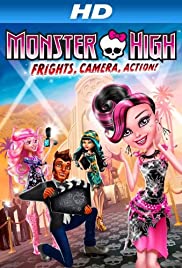
When Draculaura is led to believe she’s the rightful heir to the vampire throne, she and her best ghoulfriends are whisked away to Transylvania for a royal coronation to die for. But they soon discover the hunt for the queen is not over yet. The Ghouls must locate an ancient artifact known as the Vampire’s Heart in order to discover the identity of the true Vampire Queen. It’s a fangtastic adventure that will lead them from the Tower of Londoom, to a haunted river boat in New Goreleans and finally to the glamorous boo-vie lots of Hauntlywood. Could this be the moment when Draculara finally receives her vampire powers and discovers screams really can come true?

An English couple, a leading London lawyer and his wife re-define later life by motoring rural India in their battered 1936 Rolls Royce, falling into company with tea-wallahs and maharajahs, dodging tribal conflicts and battling with border-officials to get to a photography conference/human rights festival in Bangladesh.

The first of two Latinas to represent Texas in Congress, Veronica Escobar, and the only African-American woman to run for city council in Austin in 2018, Natasha Harper-Madison, lead a diverse group of progressive voices across Texas as they fight decades of institutional racism and policies of discrimination along the border. The battle over immigrant rights, land seizures to build the border wall, and the troubled racial history of the state form the backdrop to a film that explores how a place once known for its reactionary politics is becoming more liberal, more diverse—and more at risk for violent conflict.

A Sense of Justice, immerses us In a law firm in this same city. There, we can find Christine Mengus and Nohra Boukara, specialized in the rights of foreigners, supported by Audrey Scarinoff and their co-workers.. Stories from their sad, appalling or tragicomic cases alternate with their daily legal work. And as we hear snatches of consultations involving illegal entry or departure, deportation orders, the right to reside or medical assistance, we become witnesses to predictable tragedies, to the administrative or social precariousness induced by such predicaments, and to whole lives depending on court rulings.
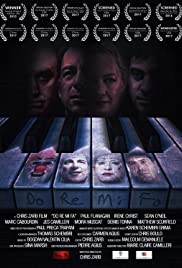
An ensemble set in Malta that focuses on four characters: Bozo, a children’s party clown who is a closet pedophile; Claudia, a stage actress who is paralyzed with feelings of insignificance and is driven to do the extreme; Kyle, a family man with a deaf son who finds it increasingly difficult to cope with challenges at home and at work; and DJ Trim, a talk radio show presenter suffering from an anxiety disorder who advocates for the rights of illegal immigrants and becomes the target of unwanted attention from a threatening caller.

In the 16th century in the Cévennes, a horse dealer by the name of Michael Kohlhaas leads a happy and prosperous family life. When a lord treats him unjustly, this pious, upstanding man raises an army and puts the country to fire and sword in order to have his rights restored.

In an invisible territory at the margins of society, at the border between anarchy and illegality, lives a wounded community that is trying to respond to a threat: of being forgotten by political institutions and having their rights as citizens trampled. Disarmed veterans, taciturn adolescents, drug addicts trying to escape addiction through love, ex-special forces soldiers still at war with the world, floundering young women and future mothers, and old people who have not lost their desire to live. Through this hidden pocket of humanity, the door opens to the abyss of today’s America.
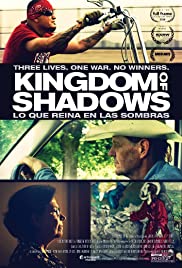
KINGDOM OF SHADOWS follows three people grappling with the hard choices and destructive consequences of the U.S.-Mexico “drug war”. Filmmaker Bernardo Ruiz weaves together the seemingly disconnected stories of an activist nun in deeply scarred Monterrey, Mexico, a U.S. Federal agent on the border, and a former Texas smuggler to reveal the human side of an often-misunderstood conflict that has resulted in the “disappearance” of more than 23,000 people in Mexico—a growing human rights crisis that only recently has made international headlines.
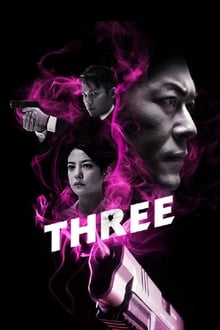
Realising that he will be defeated in no time during a police showdown, a thug shoots himself to force the cops to cease fire and take him to the hospital. In the hospital, he claims human rights to refuse immediate treatment in order to buy time for his underlings to rescue him. The detective in charge sees through his scheme but decides to play along so as to capture his whole gang once and for all.
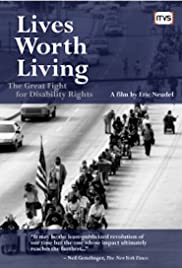
The documentary intersperses archival footage with first-person interviews with disability rights activists who fought discrimination such as Fred Fay, I. King Jordan, Judi Chamberlin and Judith Heumann, and with legislators who helped draft and secure the passage of the ADA, including Tony Coelho and Tom Harkin. From the beginnings of the disability rights movement, when veterans with disabilities returning home from World War II began to demand an end to discrimination and for better access to employment and other social opportunities, Lives Worth Living traces the history of the movement in the United States in roughly chronological order. The film documents how, in the late 1960s and early 1970s, activists with disabilities began to adopt the some of the tactics and strategies used by civil rights activists a decade earlier, including marches, protests, and civil disobedience.
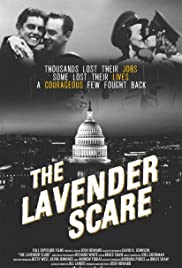
With the United States gripped in the panic of the Cold War, President Dwight D. Eisenhower deemed homosexuals to be “security risks” and ordered the immediate firing of any government employee discovered to be gay or lesbian. It triggered a vicious witch hunt that lasted forty years and ruined thousands of lives, while thrusting an unlikely hero into the forefront of what would become the modern LGBT rights movement.